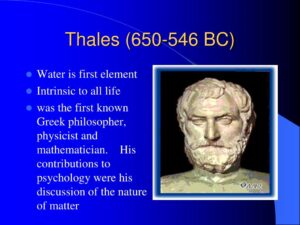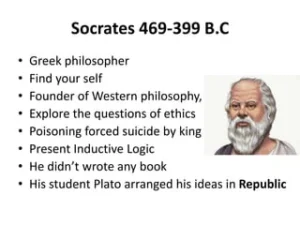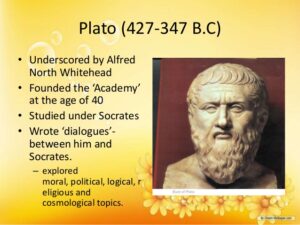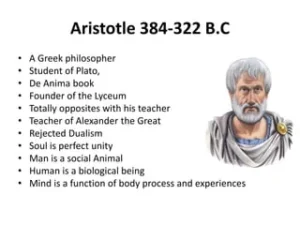The history of psychology is a rich tapestry of ideas, discoveries, and advancements that have shaped our understanding of the human mind and behavior. Here are some main points in the history of psychology:

Main Points
- Ancient Roots: Psychology’s origins can be traced back to ancient civilizations like Egypt, Greece, China, and India. Philosophers such as Plato and Aristotle pondered questions related to the mind and behavior.
- Renaissance and Early Modern Era: During the Renaissance, there was a resurgence of interest in understanding human nature. Thinkers like René Descartes proposed dualistic theories of mind and body.
- Structuralism: In the late 19th century, Wilhelm Wundt established the first psychology laboratory in Leipzig, Germany, marking the birth of psychology as a formal scientific discipline. Wundt and his followers, such as Edward Titchener, focused on structuralism, which aimed to analyze the basic elements of consciousness through introspection.
- Functionalism: Functionalism, championed by William James, emerged as a response to structuralism. Functionalists focused on understanding the adaptive purposes of mental processes and behavior.
- Psychoanalysis: Sigmund Freud’s psychoanalytic theory revolutionized psychology in the early 20th century. Freud proposed that unconscious conflicts and early childhood experiences influence behavior. His work laid the foundation for psychodynamic theory.
- Behaviorism: Behaviorism, led by John B. Watson and later B.F. Skinner, dominated psychology in the first half of the 20th century. Behaviorists focused on observable behaviors and rejected the study of mental processes. They emphasized the role of conditioning in shaping behavior.
- Gestalt Psychology: Gestalt psychology emerged in the early 20th century in Germany. Gestalt psychologists, such as Max Wertheimer and Kurt Koffka, emphasized the importance of studying the whole of conscious experience rather than its individual parts.
- Cognitive Revolution: In the mid-20th century, the cognitive revolution brought a renewed interest in the study of mental processes. Pioneers like Jean Piaget, Noam Chomsky, and Ulric Neisser focused on topics such as memory, language, and problem-solving.
- Humanistic Psychology: Humanistic psychology, spearheaded by Carl Rogers and Abraham Maslow in the mid-20th century, emphasized the importance of subjective experiences, personal growth, and self-actualization.
- Biopsychology and Neuroscience: Advances in technology, such as brain imaging techniques, have led to significant progress in understanding the biological basis of behavior. This interdisciplinary field examines how the brain and nervous system influence thoughts, feelings, and actions.
- Evolutionary Psychology: Drawing from principles of evolution, evolutionary psychologists study how psychological processes have been shaped by natural selection to promote survival and reproduction.
- Positive Psychology: Positive psychology, pioneered by Martin Seligman and others in the late 20th century, focuses on understanding the factors that contribute to human flourishing and well-being.
These points highlight the diverse and evolving nature of psychology as a discipline, demonstrating how various perspectives and approaches have contributed to our understanding of the mind and behavior.
Ancient Greek Philosophers

Ancient Greek philosophers made significant contributions to the early development of psychological thought, laying the groundwork for understanding the human mind and behavior. Here are some notable Greek philosophers who contributed to the field:
 Thales of Miletus (c. 624-546 BCE): Thales is considered one of the earliest Greek philosophers and is known for his naturalistic explanations of the world. While not a psychologist in the modern sense, his emphasis on seeking natural explanations for phenomena laid the groundwork for later philosophical inquiry into the nature of the mind and consciousness.
Thales of Miletus (c. 624-546 BCE): Thales is considered one of the earliest Greek philosophers and is known for his naturalistic explanations of the world. While not a psychologist in the modern sense, his emphasis on seeking natural explanations for phenomena laid the groundwork for later philosophical inquiry into the nature of the mind and consciousness.- Pythagoras (c. 570-495 BCE): Pythagoras is renowned for his contributions to mathematics and philosophy. While he is best known for the Pythagorean theorem, his philosophical school also explored the relationship between the mind, body, and soul. Pythagorean philosophy influenced later thinkers who delved into questions of consciousness and the nature of reality.
 Socrates (c. 469-399 BCE): Socrates is famous for his method of inquiry, known as the Socratic method, which involved questioning and dialogue to stimulate critical thinking and self-examination. While he did not directly contribute to psychology, his emphasis on self-reflection and introspection laid the foundation for later philosophical and psychological inquiry into the nature of the self and consciousness.
Socrates (c. 469-399 BCE): Socrates is famous for his method of inquiry, known as the Socratic method, which involved questioning and dialogue to stimulate critical thinking and self-examination. While he did not directly contribute to psychology, his emphasis on self-reflection and introspection laid the foundation for later philosophical and psychological inquiry into the nature of the self and consciousness. Plato (c. 427-347 BCE): Plato, a student of Socrates, explored psychological concepts in his philosophical dialogues. He discussed the nature of the soul,knowledge, and reality, proposing theories about innate ideas and the immortality of the soul. Plato’s ideas influenced later philosophical and psychological thought, particularly in the areas of epistemology and metaphysics.
Plato (c. 427-347 BCE): Plato, a student of Socrates, explored psychological concepts in his philosophical dialogues. He discussed the nature of the soul,knowledge, and reality, proposing theories about innate ideas and the immortality of the soul. Plato’s ideas influenced later philosophical and psychological thought, particularly in the areas of epistemology and metaphysics.

- Aristotle (384-322 BCE): Aristotle, a student of Plato, made significant contributions to psychology through his empirical observations and systematic approach to understanding the natural world. In his work “De Anima” (On the Soul), Aristotle explored topics such as perception, memory, imagination, and emotion. He proposed the concept of the psyche (soul) as the principle of life and categorized its functions into vegetative, sensitive, and rational faculties.
 Hippocrates (c. 460-370 BCE): Hippocrates was an ancient Greek physician whose ideas revolutionized the field of medicine. He proposed the theory of the four humors, suggesting that an imbalance of bodily fluids (blood, phlegm, yellow bile, and black bile) led to physical and mental illness. This theory, known as humorism, influenced medical and psychological thought for centuries, shaping ideas about the mind-body connection and the causes of psychological disorders.
Hippocrates (c. 460-370 BCE): Hippocrates was an ancient Greek physician whose ideas revolutionized the field of medicine. He proposed the theory of the four humors, suggesting that an imbalance of bodily fluids (blood, phlegm, yellow bile, and black bile) led to physical and mental illness. This theory, known as humorism, influenced medical and psychological thought for centuries, shaping ideas about the mind-body connection and the causes of psychological disorders.- Anaximander (c. 610-546 BCE): Anaximander is credited with being one of the earliest Western philosophers to propose a systematic cosmological theory. He speculated about the origin and nature of the universe, proposing that the primary substance (arche) from which all things originated was an indefinite and boundless substance called the “apeiron.” Anaximander’s concept of the apeiron represented an abstract, limitless principle that gave rise to the diversity of the cosmos.While
Anaximander’s focus was primarily on cosmology, his philosophical inquiries into the nature of the cosmos and the underlying principles governing reality had implications for understanding human psychology. His conception of the apeiron as an underlying unity from which all things emerge reflects an early recognition of the interconnectedness of all phenomena, including the human mind and consciousness.
- Anaximenes (c. 585-528 BCE): Anaximenes was another philosopher of the Milesian school who contributed to early Greek philosophy. He proposed that the fundamental substance (arche) underlying the cosmos was air (aer), which he believed could undergo condensation and rarefaction to give rise to the various elements and phenomena observed in the natural world. According to
Anaximenes, changes in the density of air accounted for the diversity of physical objects and processes.Like Anaximander, Anaximenes focused primarily on cosmology and natural philosophy. However, his concept of air as the primary substance and the principle of change in the universe also had implications for understanding the human psyche. Anaximenes’ emphasis on the dynamic nature of air and its role in shaping the material world may be seen as an early recognition of the intimate relationship between the external environment and human consciousness.
While these ancient Greek philosophers did not formalize psychology as a distinct discipline, their philosophical inquiries into the nature of the mind, consciousness, and human behavior laid the groundwork for later psychological thought. Their ideas continue to influence contemporary psychological theory and practice, highlighting the enduring legacy of ancient Greek philosophy in the field of psychology.